- Home
- Nora Roberts
Island of Flowers
Island of Flowers Read online
For my mother and father
Chapter One
Laine’s arrival at Honolulu International Airport was traditional. She would have preferred to melt through the crowd, but it appeared traveling tourist class categorized her as just that. Golden-skinned girls with ivory smiles and vivid sarongs bestowed brilliant colored leis. Accepting both kiss and floral necklace, Laine wove through the milling crowd and searched for an information desk. The girth of a fellow passenger hampered her journey. His yellow and orange flowered shirt and the twin cameras which joined the lei around his neck attested to his determination to enjoy his vacation. Under different circumstances, his appearance would have nudged at her humor, but the tension in Laine’s stomach stifled any amusement. She had not stood on American soil in fifteen years. The ripe land with cliffs and beaches which she had seen as the plane descended brought no sense of homecoming.
The America Laine pictured came in sporadic patches of memory and through the perspective of a child of seven. America was a gnarled elm tree guarding her bedroom window. It was a spread of green grass where buttercups scattered gold. It was a mailbox at the end of a long, winding lane. But most of all, America was the man who had taken her to imaginary African jungles and desert islands. However, there were orchids instead of daisies. The graceful palms and spreading ferns of Honolulu were as foreign to Laine as the father she had traveled half the world to find. It seemed a lifetime ago that divorce had pulled her away from her roots.
Laine felt a quiet desperation that the address she had found among her mother’s papers would lead to emptiness. The age of the small, creased piece of paper was unknown to her. Neither did she know if Captain James Simmons still lived on the island of Kauai. There had only been the address tossed in among her mother’s bills. There had been no correspondence, nothing to indicate the address was still a vital one. To write to her father was the practical thing to do, and Laine had struggled with indecision for nearly a week. Ultimately, she had rejected a letter in favor of a personal meeting. Her hoard of money would barely see her through a week of food and lodging, and though she knew the trip was impetuous, she had not been able to prevent herself. Threading through her doubts was the shimmering strand of fear that rejection waited for her at the end of her journey.
There was no reason to expect anything else, she lectured herself. Why should the man who had left her fatherless during her growing-up years care about the woman she had become? Relaxing the grip on the handle of her handbag, Laine reasserted her vow to accept whatever waited at her journey’s end. She had learned long ago to adjust to whatever life offered. She concealed her feelings with the habit developed during her adolescence.
Quickly, she adjusted the white, soft-brimmed hat over a halo of flaxen curls. She lifted her chin. No one would have guessed her underlying anxiety as she moved with unconscious grace through the crowds. She looked elegantly aloof in her inherited traveling suit of ice blue silk, altered to fit her slight figure rather than her mother’s ample curves.
The girl at the information desk was deep in an enjoyable conversation with a man. Standing to one side, Laine watched the encounter with detached interest. The man was dark and intimidatingly tall. Her pupils would undoubtedly have called him séduisant. His rugged features were surrounded by black hair in curling disorder, while his bronzed skin proved him no stranger to the Hawaiian sun. There was something rakish in his profile, some basic sensuality which Laine recognized but did not fully comprehend. She thought perhaps his nose had been broken at one time, but rather than spoiling the appeal of the profile, the lack of symmetry added to it. His dress was casual, the jeans well worn and frayed at the cuffs, and a denim work shirt exposed a hard chest and corded arms.
Vaguely irritated, Laine studied him. She observed the easy flow of charm, the indolent stance at the counter, the tease of a smile on his mouth. I’ve seen his type before, she thought with a surge of resentment, hovering around Vanessa like a crow around carrion. She remembered, too, that when her mother’s beauty had become only a shadow, the flock had left for younger prey. At that moment, Laine could feel only gratitude that her contacts with men had been limited.
He turned and encountered Laine’s stare. One dark brow rose as he lingered over his survey of her. She was too unreasonably angry with him to look away. The simplicity of her suit shouted its exclusiveness, revealing the tender elegance of young curves. The hat half shaded a fragile, faintly aristocratic face with well-defined planes, straight nose, unsmiling mouth and morning-sky eyes. Her lashes were thick and gold, and he took them as too long for authenticity. He assessed her as a cool, self-possessed woman, recognizing only the borrowed varnish.
Slowly, and with deliberate insolence, he smiled. Laine kept her gaze steady and struggled to defeat a blush. The clerk, seeing her companion’s transfer of attention, shifted her eyes in Laine’s direction and banished a scowl.
“May I help you?” Dutifully, she affixed her occupational smile. Ignoring the hovering male, Laine stepped up to the counter.
“Thank you. I need transportation to Kauai. Could you tell me how to arrange it?” A whisper of France lingered in her voice.
“Of course, there’s a charter leaving for Kauai in…” The clerk glanced at her watch and smiled again. “Twenty minutes.”
“I’m leaving right now.” Laine glanced over and gave the loitering man a brief stare. She noted that his eyes were as green as Chinese jade. “No use hanging around the airport, and,” he continued as his smile became a grin, “my Cub’s not as crowded or expensive as the charter.”
Laine’s disdainful lift of brow and dismissing survey had been successful before, but did not work this time. “Do you have a plane?” she asked coldly.
“Yeah, I’ve got a plane.” His hands were thrust in his pockets, and in his slouch against the counter, he still managed to tower over her. “I can always use the loose change from picking up island hoppers.”
“Dillon,” the clerk began, but he interrupted her with another grin and a jerk of his head.
“Rose’ll vouch for me. I run for Canyon Airlines on Kauai.” He presented Rose with a wide smile. She shuffled papers.
“Dillon … Mr. O’Brian is a fine pilot.” Rose cleared her throat and sent Dillon a telling glance. “If you’d rather not wait for the scheduled charter, I can guarantee that your flight will be equally enjoyable with him.”
Studying his irreverent smile and amused eyes, Laine was of the opinion that the trip would be something less than enjoyable. However, her funds were low and she knew she must conserve what she had.
“Very well, Mr. O’Brian, I will engage your services.” He held out his hand, palm up, and Laine dropped her eyes to it. Infuriated by his rudeness, she brought her eyes back to his. “If you will tell me your rate, Mr. O’Brian, I shall be happy to pay you when we land.”
“Your baggage check,” he countered, smiling. “Just part of the service, lady.”
Bending her head to conceal her blush, Laine fumbled through her purse for the ticket.
“O.K., let’s go.” He took both the stub and her arm, propelling her away as he called over his shoulder in farewell to the information clerk, “See you next time, Rose.”
“Welcome to Hawaii,” Rose stated out of habit, then, with a sigh, pouted after Dillon’s back.
Unused to being so firmly guided, and hampered by a stride a fraction of his, Laine struggled to maintain her composure while she trotted beside him. “Mr. O’Brian, I hope I don’t have to jog to Kauai.” He stopped and grinned at her. She tried, and failed, not to pant. His grin, she discovered, was a strange and powerful weapon, and one for which she had not yet developed a defense.
“Thought you were in a hurry, Miss…” He glanc
ed at her ticket, and she watched the grin vanish. When his eyes lifted, all remnants of humor had fled. His mouth was grim. She would have retreated from the waves of hostility had not his grip on her arm prevented her. “Laine Simmons?” It was more accusation than question.
“Yes, you’ve read it correctly,” she said.
Dillon’s eyes narrowed. She found her cool façade melting with disconcerting speed. “You’re going to see James Simmons?”
Her eyes widened. For an instant, a flash of hope flickered on her face. But his expression remained set and hostile. She smothered the impulse to ask hundreds of questions as she felt his tightening fingers bruise her arm.
“I don’t know how that concerns you, Mr. O’Brian,” she began, “but yes. Do you know my father?” She faltered over the final word, finding the novelty of its use bittersweet.
“Yes, I know him … a great deal better than you do. Well, Duchess—” he released her as if the contact was offensive “—I doubt if fifteen years late is better than never, but we’ll see. Canyon Airlines is at your disposal.” He inclined his head and gave Laine a half bow. “The trip’s on the house. I can hardly charge the owner’s prodigal daughter.” Dillon retrieved her luggage and stalked from the terminal in thunderous silence. In the wake of the storm, Laine followed, stunned by his hostility and by his information.
Her father owned an airline. She remembered James Simmons only as a pilot, with the dream of his own planes a distant fantasy. When had the dream become reality? Why did this man, who was currently tossing her mother’s elegant luggage like so many duffel bags into a small, streamlined plane, turn such hostility on her at the discovery of her name? How did he know fifteen years had spanned her separation from her father? She opened her mouth to question Dillon as he rounded the nose of the plane. She shut it again as he turned and captured her with his angry stare.
“Up you go, Duchess. We’ve got twenty-eight minutes to endure each other’s company.” His hands went to her waist, and he hoisted her as if she were no more burden than a feather pillow. He eased his long frame into the seat beside her. She became uncomfortably aware of his virility and attempted to ignore him by giving intense concentration to the buckling of her safety belt. Beneath her lashes, she watched as he flicked at the controls before the engine roared to life.
The sea opened beneath them. Beaches lay white against its verge, dotted with sun worshipers. Mountains rose, jagged and primitive, the eternal rulers of the islands. As they gained height, the colors in the scene below became so intense that they seemed artificial. Soon the shades blended. Browns, greens and blues softened with distance. Flashes of scarlet and yellow merged before fading. The plane soared with a surge of power, then its wings tilted as it made a curving arch and hurtled into the sky.
“Kauai is a natural paradise,” Dillon began in the tone of a tour guide. He leaned back in his seat and lit a cigarette. “It offers, on the North Shore, the Wailua River which ends at Fern Grotto. The foliage is exceptional. There are miles of beaches, fields of cane and pineapple. Opeakea Falls, Hanalei Bay and Na Pali Coast are also worth seeing. On the South Shore,” he continued, while Laine adopted the air of attentive listener, “we have Kokie State Park and Waimea Canyon. There are tropical trees and flowers at Olopia and Menehune Gardens. Water sports are exceptional almost anywhere around the island. Why the devil did you come?”
The question, so abrupt on the tail of his mechanical recital, caused Laine to jolt in her seat and stare. “To … to see my father.”
“Took your own sweet time about it,” Dillon muttered and drew hard on his cigarette. He turned again and gave her a slow, intimate survey. “I guess you were pretty busy attending that elegant finishing school.”
Laine frowned, thinking of the boarding school which had been both home and refuge for nearly fifteen years. She decided Dillon O’Brian was crazed. There was no use contradicting a lunatic. “I’m glad you approve,” she returned coolly. “A pity you missed the experience. It’s amazing what can be done with rough edges.”
“No thanks, Duchess.” He blew out a stream of smoke. “I prefer a bit of honest crudeness.”
“You appear to have an adequate supply.”
“I get by. Island life can be a bit uncivilized at times.” His smile was thin. “I doubt if it’s going to suit your tastes.”
“I can be very adaptable, Mr. O’Brian.” She moved her shoulders with gentle elegance. “I can also overlook a certain amount of discourtesy for short periods of time. Twenty-eight minutes is just under my limit.”
“Terrific. Tell me, Miss Simmons,” he continued with exaggerated respect, “how is life on the Continent?”
“Marvelous.” Deliberately, she tilted her head and looked at him from under the brim of her hat. “The French are so cosmopolitan, so urbane. One feels so …” Attempting to copy her mother’s easy polish, she gestured and gave the next word the French expression. “Chez soi with people of one’s own inclinations.”
“Very true.” The tone was ironic. Dillon kept his eyes on the open sky as he spoke. “I doubt if you’ll find many people of your own inclinations on Kauai.”
“Perhaps not.” Laine pushed the thought of her father aside and tossed her head. “Then again, I may find the island as agreeable as I find Paris.”
“I’m sure you found the men agreeable.” Dillon crushed out his cigarette with one quick thrust. Laine found his fresh anger rewarding. The memory of the pitifully few men with whom she had had close contact caused her to force back a laugh. Only a small smile escaped.
“The men of my acquaintance—” she apologized mentally to elderly Father Rennier “—are men of elegance and culture and breeding. They are men of high intellect and discerning tastes who possess the manners and sensitivity which I currently find lacking in their American counterparts.”
“Is that so?” Dillon questioned softly.
“That, Mr. O’Brian,” said Laine firmly, “is quite so.”
“Well, we wouldn’t want to spoil our record.” Switching over to automatic pilot, he turned in his seat and captured her. Mouth bruised mouth before she realized his intent.
She was locked in his arms, her struggles prevented by his strength and by her own dazed senses. She was overwhelmed by the scent and taste and feel of him. He increased the intimacy, parting her lips with his tongue. To escape from sensations more acute than she had thought possible, she clutched at his shirt.
Dillon lifted his face, and his brows drew straight at her look of stunned, young vulnerability. She could only stare, her eyes filled with confused new knowledge. Pulling away, he switched back to manual control and gave his attention to the sky. “It seems your French lovers haven’t prepared you for American technique.”
Stung, and furious with the weakness she had just discovered, Laine turned in her seat and faced him. “Your technique, Mr. O’Brian, is as crude as the rest of you.”
He grinned and shrugged. “Be grateful, Duchess, that I didn’t simply shove you out the door. I’ve been fighting the inclination for twenty minutes.”
“You would be wise to suppress such inclinations,” Laine snapped, feeling her temper bubbling at an alarming speed. I will not lose it, she told herself. She would not give this detestable man the satisfaction of seeing how thoroughly he had unnerved her.
The plane dipped into an abrupt nosedive. The sea hurtled toward them at a terrifying rate as the small steel bird performed a series of somersaults. The sky and sea were a mass of interchangeable blues with the white of clouds and the white of breakers no longer separate. Laine clutched at her seat, squeezing her eyes shut as the sea and sky whirled in her brain. Protest was impossible. She had lost both her voice and her heart at the first circle. She clung and prayed for her stomach to remain stationary. The plane leveled, then cruised right side up, but inside her head the world still revolved. Laine heard her companion laugh wholeheartedly.
“You can open your eyes now, Miss Simmons. We’ll be land
ing in a minute.”
Turning to him, Laine erupted with a long, detailed analysis of his character. At length, she realized she was stating her opinion in French. She took a deep breath. “You, Mr. O’Brian,” she finished in frigid English, “are the most detestable man I have ever met.”
“Thank you, Duchess.” Pleased, he began to hum.
Laine forced herself to keep her eyes open as Dillon began his descent. There was a brief impression of greens and browns melding with blue, and again the swift rise of mountains before they were bouncing on asphalt and gliding to a stop. Dazed, she surveyed the hangars and lines of aircraft, Piper Cubs and cabin planes, twin engines and passenger jets. There’s some mistake, she thought. This cannot belong to my father.
“Don’t get any ideas, Duchess,” Dillon remarked, noting her astonished stare. His mouth tightened. “You’ve forfeited your share. And even if the captain was inclined to be generous, his partner would make things very difficult. You’re going to have to look someplace else for an easy ride.”
He jumped to the ground as Laine stared at him with disbelief. Disengaging her belt, she prepared to lower herself to the ground. His hands gripped her waist before her feet made contact. For a moment, he held her suspended. With their faces only inches apart, Laine found his eyes her jailer. She had never known eyes so green or so compelling.
“Watch your step,” he commanded, then dropped her to the ground.
Laine stepped back, retreating from the hostility in his voice. Gathering her courage, she lifted her chin and held her ground. “Mr. O’Brian, would you please tell me where I might find my father?”
He stared for a moment, and she thought he would simply refuse and leave her. Abruptly, he gestured toward a small white building. “His office is in there,” he barked before he turned to stride away.
Chapter Two
The building which Laine approached was a midsize hut. Fanning palms and flaming anthurium skirted its entrance. Hands trembling, Laine entered. She felt as though her knees might dissolve under her, as though the pounding of her heart would burst through her head. What would she say to the man who had left her floundering in loneliness for fifteen years? What words were there to bridge the gap and express the need which had never died? Would she need to ask questions, or could she forget the whys and just accept?
Laine’s image of James Simmons was as clear and vivid as yesterday. It was not dimmed by the shadows of time. He would be older, she reminded herself. She was older as well. She was not a child trailing after an idol, but a woman meeting her father. They were neither one the same as they had been. Perhaps that in itself would be an advantage.
The outer room of the hut was deserted. Laine had a vague impression of wicker furnishings and woven mats. She stared around

 A Little Magic
A Little Magic Vision in White
Vision in White True Betrayals
True Betrayals The Next Always
The Next Always A Man for Amanda
A Man for Amanda Born in Fire
Born in Fire Tribute
Tribute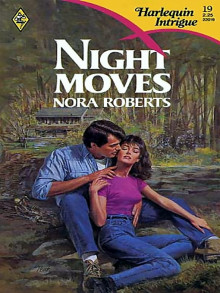 Night Moves
Night Moves Dance Upon the Air
Dance Upon the Air The Name of the Game
The Name of the Game Jewels of the Sun
Jewels of the Sun River's End
River's End Public Secrets
Public Secrets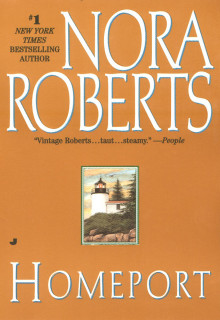 Homeport
Homeport Private Scandals
Private Scandals The Witness
The Witness Blithe Images
Blithe Images Hidden Riches
Hidden Riches Key of Light
Key of Light Divine Evil
Divine Evil High Noon
High Noon Blue Dahlia
Blue Dahlia Sea Swept
Sea Swept This Magic Moment
This Magic Moment Year One
Year One A Little Fate
A Little Fate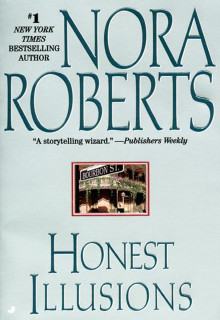 Honest Illusions
Honest Illusions The Reef
The Reef Shelter in Place
Shelter in Place The Hollow
The Hollow Holding the Dream
Holding the Dream The Pagan Stone
The Pagan Stone Savour the Moment
Savour the Moment The Perfect Hope
The Perfect Hope Island of Glass
Island of Glass Happy Ever After
Happy Ever After Bed of Roses
Bed of Roses Stars of Fortune
Stars of Fortune Dark Witch
Dark Witch The Return of Rafe MacKade
The Return of Rafe MacKade Chesapeake Blue
Chesapeake Blue The Perfect Neighbor
The Perfect Neighbor The Collector
The Collector Come Sundown
Come Sundown Rebellion
Rebellion Affaire Royale
Affaire Royale Daring to Dream
Daring to Dream Bay of Sighs
Bay of Sighs Blood Magick
Blood Magick Angels Fall
Angels Fall Captivated
Captivated The Last Boyfriend
The Last Boyfriend Irish Thoroughbred
Irish Thoroughbred Inner Harbor
Inner Harbor The Right Path
The Right Path Night Shadow
Night Shadow The Heart of Devin MacKade
The Heart of Devin MacKade Shadow Spell
Shadow Spell The Playboy Prince
The Playboy Prince The Fall of Shane MacKade
The Fall of Shane MacKade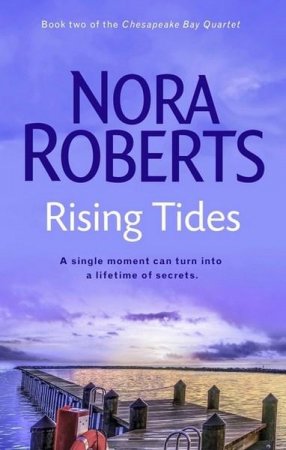 Rising Tides
Rising Tides Command Performance
Command Performance Hidden Star
Hidden Star Cordina's Crown Jewel
Cordina's Crown Jewel The MacGregor Brides
The MacGregor Brides The Pride of Jared MacKade
The Pride of Jared MacKade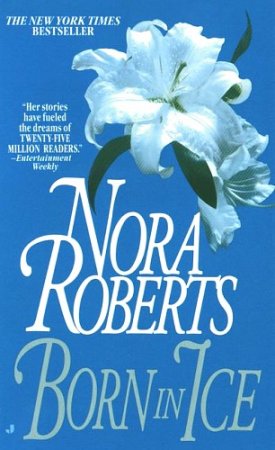 Born in Ice
Born in Ice Whiskey Beach
Whiskey Beach The Last Honest Woman
The Last Honest Woman Night Shield
Night Shield Born in Shame
Born in Shame Secret Star
Secret Star Tempting Fate
Tempting Fate Nightshade
Nightshade The Obsession
The Obsession Night Shift
Night Shift Playing The Odds
Playing The Odds Tears of the Moon
Tears of the Moon One Man's Art
One Man's Art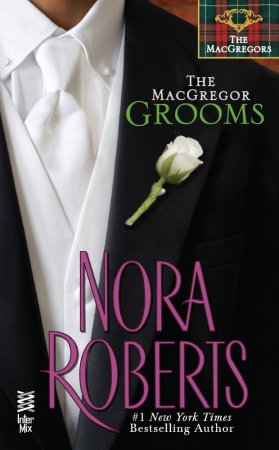 The MacGregor Groom
The MacGregor Groom Irish Rebel
Irish Rebel Morrigan's Cross
Morrigan's Cross In From The Cold
In From The Cold Night Smoke
Night Smoke Finding the Dream
Finding the Dream Red Lily
Red Lily The Liar
The Liar Montana Sky
Montana Sky Heart of the Sea
Heart of the Sea All The Possibilities
All The Possibilities Opposites Attract
Opposites Attract Captive Star
Captive Star The Winning Hand
The Winning Hand Key of Valor
Key of Valor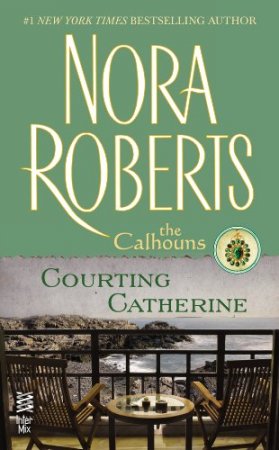 Courting Catherine
Courting Catherine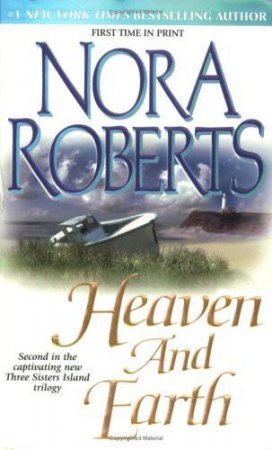 Heaven and Earth
Heaven and Earth Face the Fire
Face the Fire Untamed
Untamed Skin Deep
Skin Deep Enchanted
Enchanted Song of the West
Song of the West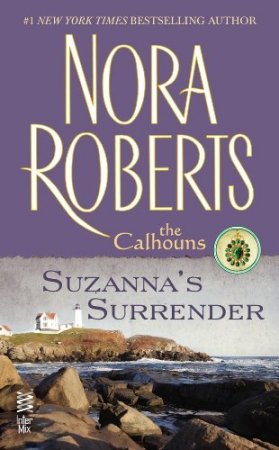 Suzanna's Surrender
Suzanna's Surrender Entranced
Entranced Dance of the Gods
Dance of the Gods Key of Knowledge
Key of Knowledge Charmed
Charmed For Now, Forever
For Now, Forever Blood Brothers
Blood Brothers Sweet Revenge
Sweet Revenge Three Fates
Three Fates Mind Over Matter
Mind Over Matter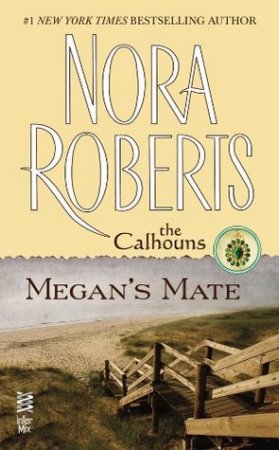 Megan's Mate
Megan's Mate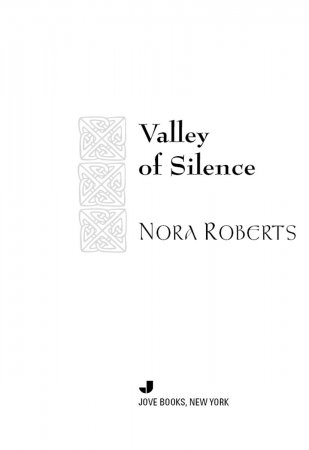 Valley of Silence
Valley of Silence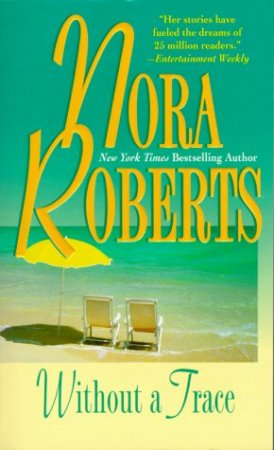 Without A Trace
Without A Trace The Law is a Lady
The Law is a Lady Temptation
Temptation Dance to the Piper
Dance to the Piper Blue Smoke
Blue Smoke Black Hills
Black Hills The Heart's Victory
The Heart's Victory Sullivan's Woman
Sullivan's Woman Genuine Lies
Genuine Lies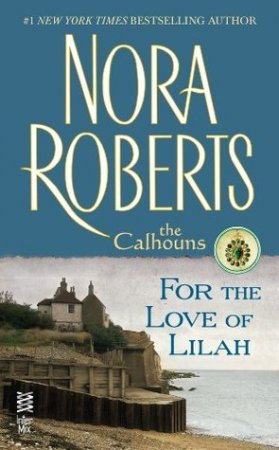 For the Love of Lilah
For the Love of Lilah Gabriel's Angel
Gabriel's Angel Irish Rose
Irish Rose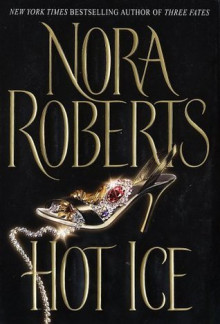 Hot Ice
Hot Ice Dual Image
Dual Image Lawless
Lawless Catch My Heart
Catch My Heart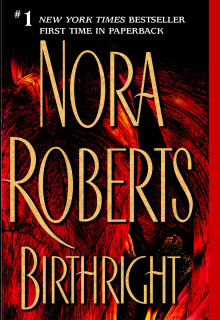 Birthright
Birthright First Impressions
First Impressions Chasing Fire
Chasing Fire Carnal Innocence
Carnal Innocence Best Laid Plans
Best Laid Plans The Villa
The Villa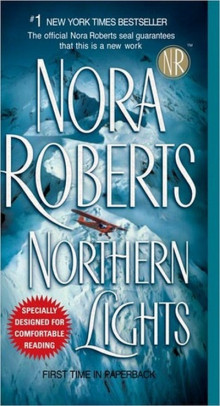 Northern Lights
Northern Lights Local Hero
Local Hero Island of Flowers
Island of Flowers The Welcoming
The Welcoming All I Want for Christmas
All I Want for Christmas Black Rose
Black Rose Hot Rocks
Hot Rocks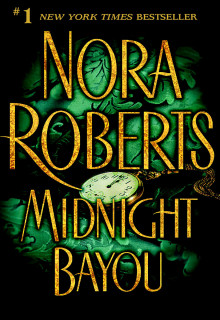 Midnight Bayou
Midnight Bayou The Art of Deception
The Art of Deception From This Day
From This Day Less of a Stranger
Less of a Stranger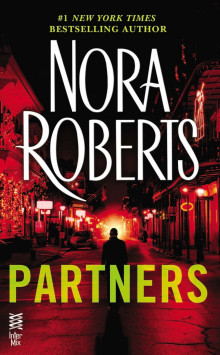 Partners
Partners Storm Warning
Storm Warning Once More With Feeling
Once More With Feeling Her Mother's Keeper
Her Mother's Keeper Sacred Sins
Sacred Sins Rules of the Game
Rules of the Game Sanctuary
Sanctuary Unfinished Business
Unfinished Business Cordina's Royal Family Collection
Cordina's Royal Family Collection Dangerous Embrace
Dangerous Embrace One Summer
One Summer The Best Mistake
The Best Mistake Boundary Lines
Boundary Lines Under Currents
Under Currents The Stanislaski Series Collection, Volume 1
The Stanislaski Series Collection, Volume 1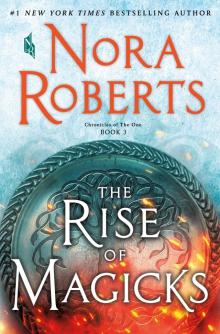 The Rise of Magicks
The Rise of Magicks The Rise of Magicks (Chronicles of The One)
The Rise of Magicks (Chronicles of The One) The Awakening: The Dragon Heart Legacy Book 1
The Awakening: The Dragon Heart Legacy Book 1 Dance of Dreams
Dance of Dreams Skin Deep: The O'Hurleys
Skin Deep: The O'Hurleys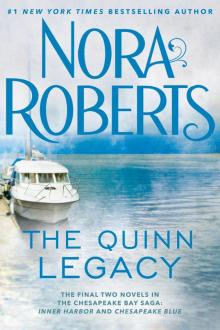 The Quinn Legacy: Inner Harbor ; Chesapeake Blue
The Quinn Legacy: Inner Harbor ; Chesapeake Blue![[Chronicles of the One 03.0] The Rise of Magicks Read online](http://i1.bookreadfree.com/11/chronicles_of_the_one_03_0_the_rise_of_magicks_preview.jpg) [Chronicles of the One 03.0] The Rise of Magicks
[Chronicles of the One 03.0] The Rise of Magicks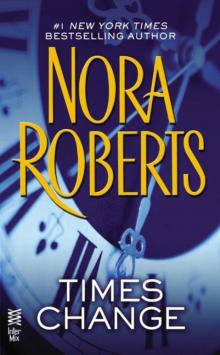 Times Change
Times Change Dance to the Piper: The O'Hurleys
Dance to the Piper: The O'Hurleys Christmas In the Snow: Taming Natasha / Considering Kate
Christmas In the Snow: Taming Natasha / Considering Kate Waiting for Nick
Waiting for Nick Summer Desserts
Summer Desserts Dream 2 - Holding the Dream
Dream 2 - Holding the Dream The Novels of Nora Roberts, Volume 2
The Novels of Nora Roberts, Volume 2 In the Garden Trilogy
In the Garden Trilogy Eight Classic Nora Roberts Romantic Suspense Novels
Eight Classic Nora Roberts Romantic Suspense Novels Best Laid Plans jh-2
Best Laid Plans jh-2 From the Heart
From the Heart Holiday Wishes
Holiday Wishes Dream 1 - Daring to Dream
Dream 1 - Daring to Dream Second Nature
Second Nature Summer Pleasures
Summer Pleasures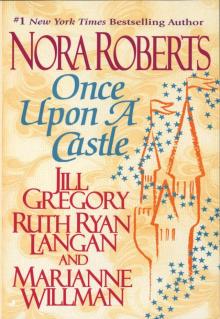 Once Upon a Castle
Once Upon a Castle Stars of Mithra Box Set: Captive StarHidden StarSecret Star
Stars of Mithra Box Set: Captive StarHidden StarSecret Star Impulse
Impulse The Irish Trilogy by Nora Roberts
The Irish Trilogy by Nora Roberts The Pride Of Jared Mackade tmb-2
The Pride Of Jared Mackade tmb-2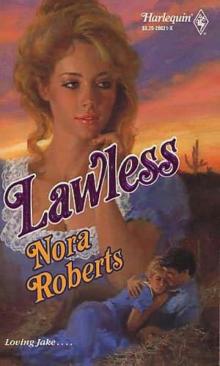 Lawless jh-3
Lawless jh-3 Taming Natasha
Taming Natasha Endless Summer
Endless Summer Bride Quartet Collection
Bride Quartet Collection Happy Ever After tbq-4
Happy Ever After tbq-4 Heart Of The Sea goa-3
Heart Of The Sea goa-3 Search for Love
Search for Love Once upon a Dream
Once upon a Dream Once Upon a Star
Once Upon a Star Dream Trilogy
Dream Trilogy Risky Business
Risky Business The Novels of Nora Roberts, Volume 3
The Novels of Nora Roberts, Volume 3 Dream 3 - Finding the Dream
Dream 3 - Finding the Dream Promises in Death id-34
Promises in Death id-34 The Novels of Nora Roberts, Volume 4
The Novels of Nora Roberts, Volume 4 The Perfect Hope ib-3
The Perfect Hope ib-3 Less than a Stranger
Less than a Stranger Savour the Moment: Now the Big Day Has Finally Arrived, It's Time To...
Savour the Moment: Now the Big Day Has Finally Arrived, It's Time To... Convincing Alex
Convincing Alex Bed of Roses tbq-2
Bed of Roses tbq-2 Savour the Moment tbq-3
Savour the Moment tbq-3 Lessons Learned
Lessons Learned Key Of Valor k-3
Key Of Valor k-3 Red lily gt-3
Red lily gt-3 Savor the Moment
Savor the Moment The Return Of Rafe Mackade tmb-1
The Return Of Rafe Mackade tmb-1 For The Love Of Lilah tcw-3
For The Love Of Lilah tcw-3 Black Rose gt-2
Black Rose gt-2 Novels: The Law is a Lady
Novels: The Law is a Lady Chesapeake Bay Saga 1-4
Chesapeake Bay Saga 1-4 Considering Kate
Considering Kate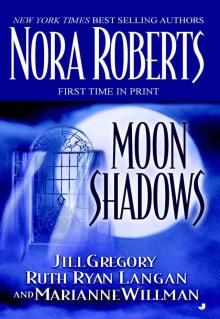 Moon Shadows
Moon Shadows Key of Knowledge k-2
Key of Knowledge k-2 The Sign of Seven Trilogy
The Sign of Seven Trilogy Once Upon a Kiss
Once Upon a Kiss The Novels of Nora Roberts, Volume 5
The Novels of Nora Roberts, Volume 5 Suzanna's Surrender tcw-4
Suzanna's Surrender tcw-4 The Quinn Brothers
The Quinn Brothers Falling for Rachel
Falling for Rachel Brazen Virtue
Brazen Virtue Time Was
Time Was The Gallaghers of Ardmore Trilogy
The Gallaghers of Ardmore Trilogy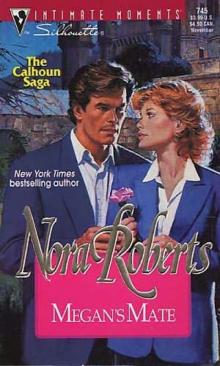 Megan's Mate tcw-5
Megan's Mate tcw-5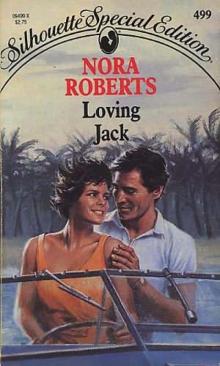 Loving Jack jh-1
Loving Jack jh-1 Rebellion & In From The Cold
Rebellion & In From The Cold Blue Dahlia gt-1
Blue Dahlia gt-1 The MacGregor Grooms
The MacGregor Grooms The Next Always tibt-1
The Next Always tibt-1 The Heart Of Devin Mackade tmb-3
The Heart Of Devin Mackade tmb-3 The Novels of Nora Roberts Volume 1
The Novels of Nora Roberts Volume 1 Treasures Lost, Treasures Found
Treasures Lost, Treasures Found Nora Roberts's Circle Trilogy
Nora Roberts's Circle Trilogy The Key Trilogy
The Key Trilogy The Fall Of Shane Mackade tmb-4
The Fall Of Shane Mackade tmb-4 A Will And A Way
A Will And A Way Jewels of the Sun goa-1
Jewels of the Sun goa-1 Luring a Lady
Luring a Lady